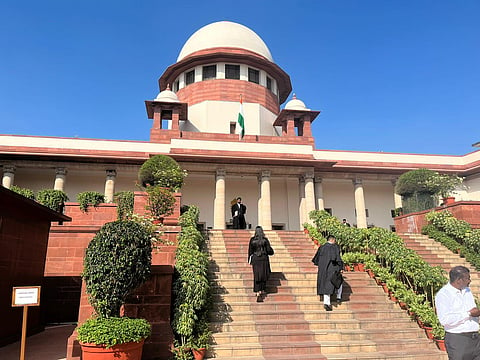Jail reforms: SC panel moots sweeping changes
NEW DELHI: Lamenting the state of affairs in prisons across the country, the Supreme Court Committee on Prison Reforms has recommended mandatory segregation of undertrials, convicts and first-time offenders inside jails, while producing them in courts, during their hospital visits, etc.
“The issue of overcrowding lies majorly with the undertrial population in prisons. Many states have a high number of undertrial prisoners who are languishing in jails for years, awaiting trial. Speedy trial can become the effective tool to address this issue and, hence, following steps can be taken in this regard: (i) special fast track courts to be set up to extensively deal with petty offences and for cases pending for five years or more. This will significantly put a curb on increasing the number of undertrials in prisons,” the committee said.
The recommendations have been put forth by the committee, headed by ex-judge Amitava Roy, to the Supreme Court in a report in compliance of a 2018 order. The committee, comprising Director General of Tihar Prisons and Inspector General of Bureau of Police Research and Development, was tasked to study the issue of jail reforms and recommend the aspects of overcrowding in prisons, condition of women and children, transgender prisoners, death-row convicts, semi-open or open jails, and reforms in juvenile correctional homes.
Agreeing to examine the recommendations, the Supreme Court had asked the Centre and states to respond to the suggestions in three weeks. A bench of justices Hima Kohli and Rajesh Bindal had said it would firstly consider the issues pertaining to women and children, transgender prisoners and death-row convicts and later address the other issues.
To address overcrowding in jails, prevent prisons from becoming a “breeding ground” for violence and “recruitment centres for criminals”, justice Roy committee has recommended tasking district and sessions judge with the responsibility of regularly monitoring the progress of cases pending in courts where the accused is in custody for more than one year in a session triable case and for more than six months in magistrate triable cases.
Highlighting the grim reality of states regarding formulation of welfare schemes for transgender prisoners and appointment of a designated officer to deal with complaints of violation of rights, the panel in its report said, “Prison authorities of only 13 states and two Union Territories have designated a ‘complaint officer’ to deal with complaints of violation of rights of transgender inmates in prisons as mentioned under Section 11 of Transgender Persons (Protection of Rights) Act, 2019.
Majority of the states and Union Territories have not formulated welfare schemes for transgender prisoners. Existing welfare schemes are being extended to them. Only seven states and two Union Territories have specifically provided the measures taken by prison authorities to facilitate their access to the relevant welfare schemes.”
Against an increase in cases of suicide by hanging, the panel while calling death in prisons as one of the worst violations of human recommended or suicide-proof barracks with collapsible material. “There is a need to identify potential hanging and anchoring points within the existing design of prison infrastructure and to build suicide-resistant cells/barracks with collapsible material,” the panel said.

